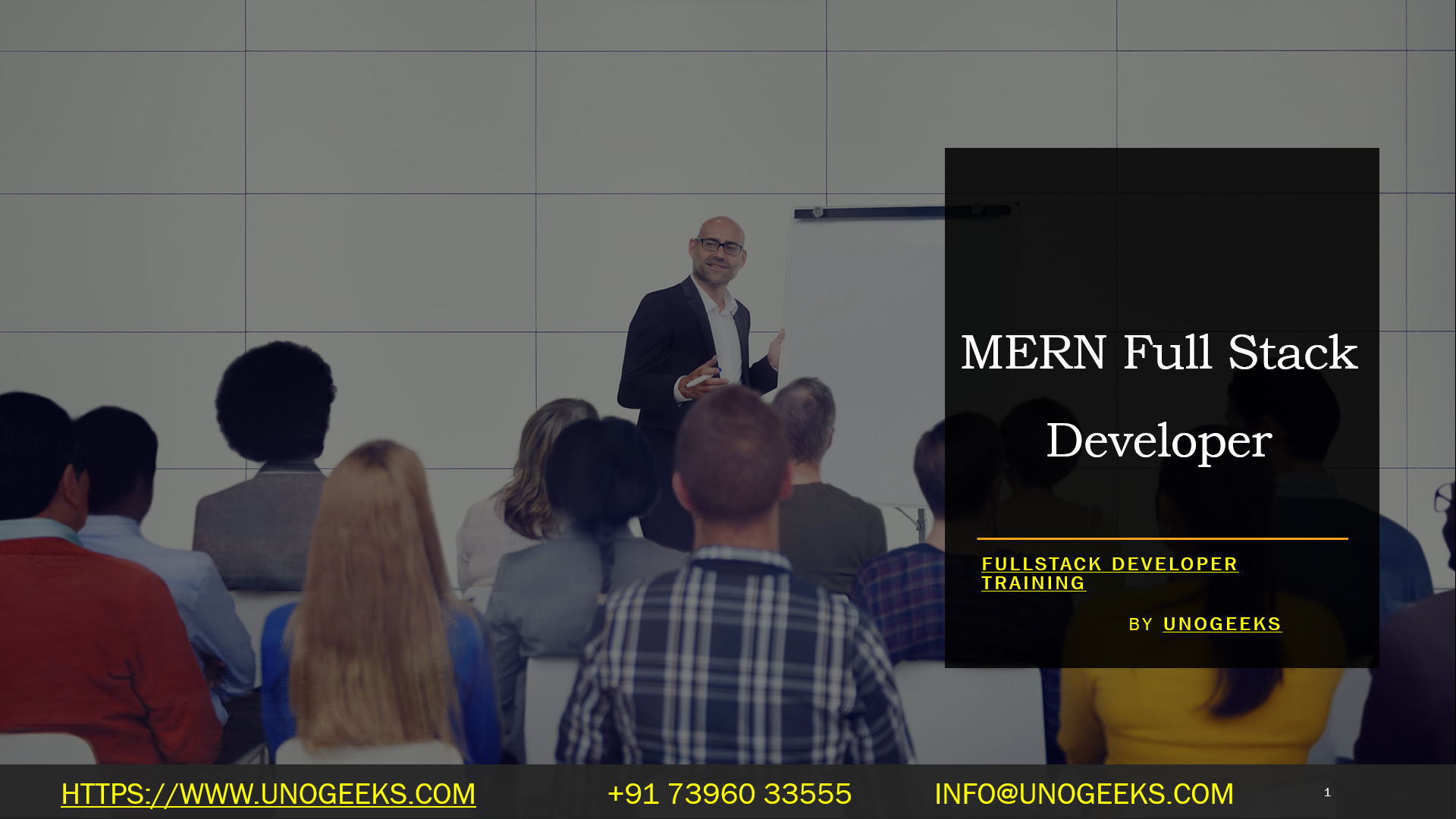MERN Full Stack Developer
MERN Full Stack Developer
A MERN Full Stack Developer is a professional who specializes in using the MERN stack to develop web applications. The MERN stack is a popular combination of JavaScript-based technologies used for building full-stack web applications. “MERN” stands for MongoDB, Express.js, React, and Node.js, which are the key components of this stack. Here’s an overview of the MERN stack and the role of a MERN Full Stack Developer:
Components of the MERN Stack:
- MongoDB: MongoDB is a NoSQL database that stores data in a flexible, JSON-like format called BSON. It is known for its scalability and ability to handle unstructured data.
- Express.js: Express.js is a lightweight and flexible Node.js web application framework used for building web servers and APIs. It simplifies server-side development.
- React: React is a JavaScript library for building user interfaces. It is used for creating the front end of web applications. React provides a component-based architecture for building interactive and responsive UIs.
- Node.js: Node.js is a runtime environment for executing JavaScript code on the server side. It allows developers to build server-side logic and APIs using JavaScript.
Responsibilities of a MERN Full Stack Developer:
- Front-End Development: Creating the user interface and client-side functionality of web applications using React. This includes designing and developing interactive web pages, forms, and user interfaces.
- Back-End Development: Building server-side logic and APIs using Node.js and Express.js. This involves handling data, routing, authentication, and business logic on the server.
- Database Management: Designing and interacting with MongoDB databases, including creating schemas, defining models, and performing CRUD (Create, Read, Update, Delete) operations.
- State Management: Implementing state management in React applications using tools like Redux or the React Context API to manage application-level data.
- API Integration: Integrating third-party APIs and services into the application for features like payment processing, social media authentication, or data retrieval.
- Deployment: Deploying web applications to web servers or cloud platforms like AWS, Heroku, or Netlify. This includes configuring server environments and ensuring application scalability.
- Optimization: Optimizing web applications for performance, load times, and responsiveness. This includes code splitting, lazy loading, and other optimization techniques.
- Testing: Writing unit tests and conducting integration testing to ensure the reliability and quality of the application.
- Version Control: Using Git for version control, collaborating with other developers, and managing code repositories.
- Security: Implementing security measures to protect the application against common web vulnerabilities, such as XSS (Cross-Site Scripting) and CSRF (Cross-Site Request Forgery).
Full Stack Developer Training Demo Day 1 Video:
Conclusion:
Unogeeks is the No.1 IT Training Institute for Full Stack Developer Training. Anyone Disagree? Please drop in a comment
You can check out our other latest blogs on Full Stack Developer Training here – Full Stack Developer Blogs
Please check out our Best In Class Full Stack Developer Training Details here – Full Stack Developer Training

———————————-
For Training inquiries:
Call/Whatsapp: +91 73960 33555
Mail us at: info@unogeeks.com
Our Website ➜ https://unogeeks.com
Follow us:
Instagram: https://www.instagram.com/unogeeks
Facebook:https://www.facebook.com/UnogeeksSoftwareTrainingInstitute
Twitter: https://twitter.com/unogeeks
